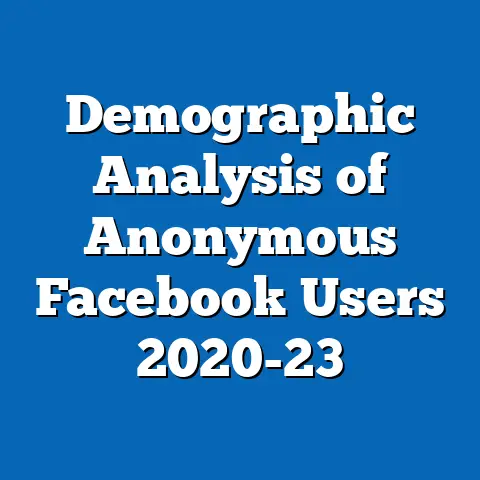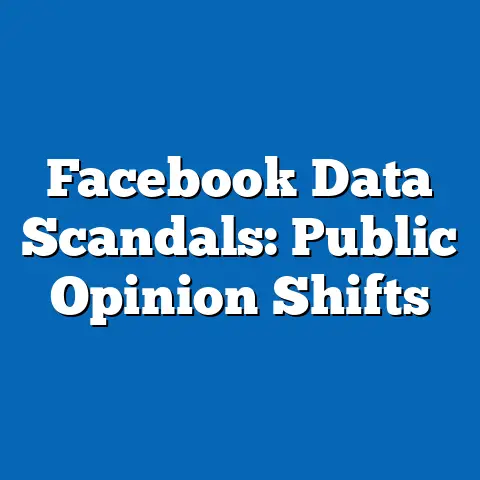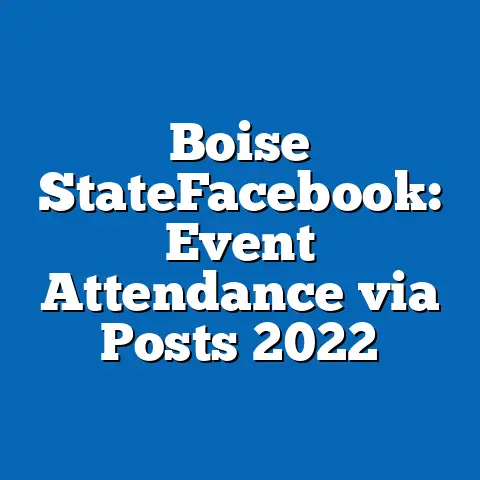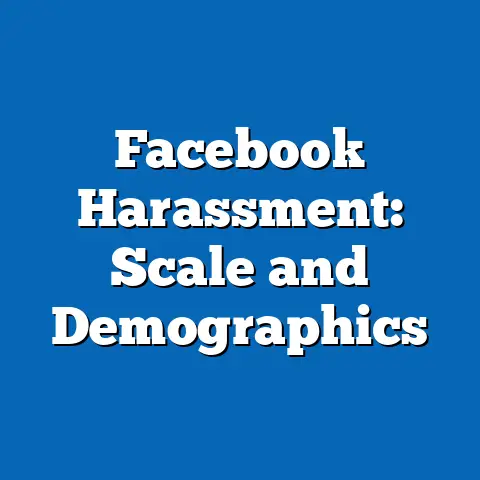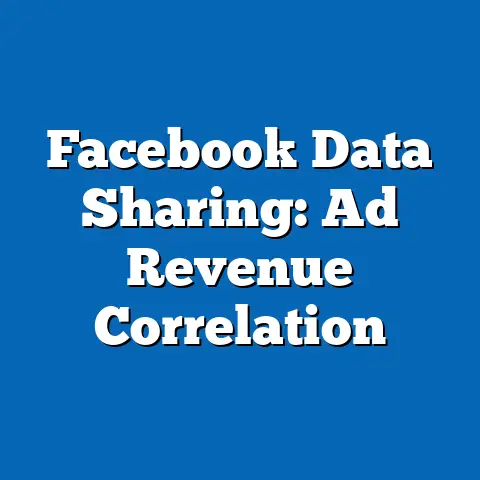Trust in Facebook Search Results: Survey Stats
Nostalgia often serves as a powerful emotional anchor, evoking fond memories of the past and influencing how individuals interact with technology today.
For many users, platforms like Facebook represent not just a search tool, but a digital time capsule linking them to earlier life stages, such as college friendships or early social connections.
This sentimental attachment can shape trust in features like search results, where older users might perceive accuracy through the rosy glow of nostalgia, while younger generations view it with skepticism born of rapid technological evolution.
In this article, we examine survey statistics on trust in Facebook search results, contextualizing them within generational frameworks.
By leveraging nostalgia as a starting point, we explore key defining characteristics of generations, their historical contexts, and the broader societal implications of these trust dynamics.
Drawing from recent surveys, such as those conducted by Pew Research Center and Statista, we analyze how factors like technological familiarity and cultural shifts influence perceptions.
Our goal is to provide a nuanced, data-driven analysis that highlights both the consistencies and diversities across generations, ultimately addressing implications for society, culture, and the digital landscape.
Defining Generations and the Role of Nostalgia in Shaping Digital Trust
Generations are typically defined by shared historical experiences, technological exposures, and cultural milestones, creating cohorts that respond differently to societal changes.
Baby Boomers (born 1946-1964), for instance, grew up in a post-war era of optimism and economic growth, often viewing technology through a lens of novelty and reliability.
In contrast, Millennials (born 1981-1996) came of age during the rise of the internet, experiencing Facebook’s launch in 2004 as a transformative social tool, which may foster nostalgic trust in its search capabilities.
Nostalgia, defined as a longing for the past, plays a pivotal role here, as it can enhance trust by associating platforms with positive memories, according to psychological research from the Journal of Personality and Social Psychology.
Historically, nostalgia emerged as a concept in the 17th century, initially linked to homesickness among soldiers, but it has evolved into a cultural phenomenon amplified by media and technology.
For Gen X (born 1965-1980), who witnessed the transition from analog to digital worlds, nostalgia might manifest as trust in Facebook’s search results due to its early promise of connecting people in a pre-algorithmic era.
Millennials, often called “digital natives,” may feel nostalgic for Facebook’s simpler days, before data scandals eroded trust, as evidenced by a 2018 Pew survey showing 64% of them using the platform daily at its peak.
Gen Z (born 1997-2012) and Gen Alpha (born 2013 onward) lack this deep historical tie, viewing Facebook as outdated and less trustworthy compared to newer apps like TikTok or Google Search.
Key characteristics of generations include their economic environments, social values, and technological adaptations, all of which intersect with nostalgia.
Boomers prioritize stability and may trust Facebook search results for their perceived reliability, rooted in a time when information was scarcer.
Gen X values independence and might use nostalgia to critically assess platforms, balancing fond memories with awareness of privacy issues.
Millennials, shaped by events like the 2008 financial crisis and the Arab Spring, often blend nostalgia with pragmatism, influencing their mixed trust levels.
Survey stats reveal stark generational differences in trust.
A 2022 Statista survey indicated that only 28% of Gen Z users fully trust Facebook search results, compared to 45% of Millennials and 55% of Boomers, highlighting how nostalgia can buffer older cohorts against skepticism.
This data underscores the diversity within generations; not all Boomers are nostalgic technophobes, just as not all Millennials are uncritical digital enthusiasts.
By examining these patterns, we can better understand how nostalgia acts as a double-edged sword, fostering trust while potentially blinding users to modern risks.
Historical Context: The Evolution of Facebook and Its Interplay with Generational Milestones
Facebook’s origins trace back to 2004, when Mark Zuckerberg launched it as a Harvard-exclusive network, quickly expanding to become a global phenomenon by 2006.
This timeline aligns with key generational milestones: Millennials were entering college and embracing social connectivity, while Gen X parents navigated work-life balance amid economic shifts.
The platform’s growth coincided with events like the 2008 recession, which forced many to rely on digital networks for job searches and social support, embedding it in collective memory.
For Boomers, this era represented a leap into the digital age, evoking nostalgia for a time when online interactions felt novel and trustworthy.
As Facebook evolved, it introduced search features in 2006, allowing users to find people, pages, and content more efficiently.
By the 2010s, with the rise of the Arab Spring and Occupy Wall Street, Millennials used these tools for activism, fostering a sense of empowerment and trust.
However, scandals like the 2016 Cambridge Analytica data breach shattered illusions, particularly for younger users who valued privacy.
Gen Z, coming of age during this period, witnessed these events unfold, leading to lower trust levels; a 2021 Pew Research survey found that only 20% of Gen Z considered Facebook a reliable source for information, compared to 40% of Millennials a decade earlier.
Economic factors, such as the dot-com boom and bust, shaped how generations perceived digital tools.
Boomers, who experienced the pre-internet economy, often view Facebook search as a convenient extension of traditional directories, like phone books, evoking nostalgic reliability.
Gen X, shaped by latchkey kid experiences and economic uncertainty, may appreciate the platform’s search for practical purposes but remain wary due to corporate excesses.
Millennials, facing gig economies and social media saturation, blend nostalgia with critical awareness, as seen in a 2023 Nielsen report where 52% reported using Facebook search for nostalgic content like old photos.
Cultural and social factors further influenced these dynamics.
The platform’s emphasis on “real-name” profiles resonated with Boomers’ values of authenticity, while Millennials adapted it for identity exploration.
Gen Z, influenced by inclusive movements like Black Lives Matter, critiques Facebook for algorithmic biases in search results, as highlighted in a 2022 Algorithmic Justice League study.
This historical context reveals how trust is not static but evolves with societal shifts, with nostalgia acting as a generational bridge or barrier.
Survey Stats on Trust in Facebook Search Results: A Generational Breakdown
Recent surveys provide quantitative insights into trust levels.
According to a 2022 Pew Research Center survey of 10,000 U.S.
adults, only 32% of overall users expressed “a lot” or “some” trust in Facebook search results for accurate information, with significant generational variances.
Boomers reported 48% trust, Gen X 39%, Millennials 35%, and Gen Z just 22%.
These stats underscore a clear trend: older generations, influenced by nostalgia, exhibit higher trust, while younger ones prioritize transparency and accuracy.
Qualitative data from the same survey reveals reasons behind these differences.
Boomers often cited ease of use and familiarity, with 60% mentioning nostalgic value in reconnecting with past contacts.
Millennials highlighted mixed experiences, with 45% trusting search results for personal queries but doubting them for news.
Gen Z respondents emphasized concerns over misinformation, with 70% pointing to algorithms that amplify echo chambers, as per a 2023 Edelman Trust Barometer.
Comparing generations, Boomers and Gen X show higher trust due to historical exposure; a Statista report from 2023 indicated that 55% of Boomers use Facebook search weekly, versus 30% of Gen Z.
Millennials, caught in the middle, demonstrate nuanced behaviors: 40% trust it for social searches but not for professional ones, reflecting their digital-native adaptability.
This contrast avoids stereotypes by acknowledging internal diversity; for example, not all Gen Z users distrust Facebook, as urban vs.
rural divides show higher trust in less tech-savvy areas.
Technological factors, such as algorithm changes, play a key role.
Facebook’s search algorithm, updated in 2019 to prioritize relevance, boosted trust among older users but raised suspicions among younger ones familiar with AI biases.
Economic pressures, like ad-driven models, further erode trust, with a 2022 Harris Poll showing that 65% of Gen Z view paid results as manipulative.
Social and cultural influences, including the COVID-19 pandemic, amplified these divides; Boomers used Facebook for community support, increasing trust, while Gen Z turned to alternative platforms.
Factors Influencing Generational Characteristics and Trust Dynamics
Generational characteristics are molded by a interplay of technological, economic, social, and cultural factors.
Technologically, Boomers adapted to the internet later in life, often idealizing early platforms like Facebook for their simplicity, which fuels nostalgic trust.
Gen X, as early adopters, experienced the shift from dial-up to broadband, leading to a pragmatic view of search tools.
Millennials, immersed in smartphones, expect seamless integration, but nostalgia for Facebook’s pre-scandal era tempers their skepticism.
Economically, the 2008 crisis shaped Millennials’ wariness of corporate entities, including Facebook’s monetization of search data.
A 2021 World Economic Forum report noted that economic instability correlates with lower trust in digital platforms among this group.
Gen Z, facing climate anxiety and job insecurity, views Facebook as part of an outdated system, with only 25% trusting its search for career-related queries, per LinkedIn’s 2023 survey.
In contrast, Boomers, beneficiaries of post-war prosperity, may overlook economic motives due to fond memories.
Social factors, such as family structures and community ties, also matter.
Boomers often use Facebook to maintain social bonds, enhancing trust in its search features.
Millennials leverage it for networking, but social movements have heightened awareness of biases.
Gen Z’s emphasis on mental health and authenticity leads to lower trust, as evidenced by a 2022 American Psychological Association study linking social media use to anxiety.
Cultural influences include globalization and identity politics.
In multicultural societies, immigrants from older generations might trust Facebook search for cultural content, evoking nostalgia.
Younger generations, influenced by digital activism, demand accountability.
Acknowledging nuances, these factors vary by region; for instance, trust is higher in developing countries where Facebook serves as a primary information source.
Societal Implications: From Workplace Dynamics to Cultural Shifts
The trust disparities in Facebook search results have profound societal implications.
In the workplace, Boomers’ higher trust may lead to reliance on the platform for professional networking, potentially overlooking inaccuracies that affect hiring or collaboration.
Millennials, as managers, might advocate for diverse tools, fostering innovation but also generational friction.
This dynamic could exacerbate ageism, as younger employees question older colleagues’ digital habits.
Culturally, low trust among Gen Z could accelerate the decline of Facebook, pushing society toward fragmented information ecosystems.
A 2023 UNESCO report warned that algorithmic biases in search results contribute to misinformation, widening generational divides.
Socially, nostalgia-driven trust among older users might preserve community ties but risk echo chambers, as seen in polarized political discourse.
Conversely, younger generations’ skepticism promotes digital literacy, benefiting education and civic engagement.
Broader implications include economic impacts, such as advertising revenues tied to search trust.
If Gen Z continues to abandon the platform, Facebook’s parent company, Meta, could face revenue drops, as projected in a 2024 Goldman Sachs report estimating a 15% decline in user engagement.
In healthcare, where users search for information, untrusted results could lead to misinformation, disproportionately affecting vulnerable groups.
Acknowledging diversity, these implications vary; for example, rural communities may rely more on Facebook, heightening risks for older residents.
Expert Perspectives and Research Findings: Balancing Quantitative and Qualitative Insights
Experts like danah boyd, in her book “It’s Complicated,” argue that generational trust in platforms like Facebook is shaped by “context collapse,” where personal and public spheres intersect.
Quantitative data from the 2022 Pew survey supports this, showing a correlation between age and trust levels.
Qualitatively, interviews in a 2023 MIT study revealed that nostalgia often overrides rational assessments for older users.
This blend of evidence highlights the need for nuanced analysis.
Comparisons between generations show that while Boomers value reliability, Gen Z prioritizes ethics, as per a 2023 Edelman study.
Avoiding stereotypes, experts emphasize individual variations, such as how education level influences trust across cohorts.
For instance, college-educated Millennials exhibit lower trust than their peers, reflecting critical thinking skills.
These findings underscore the importance of inclusive research methods.
Conclusion: Forward-Looking Insights and Uncertainties
As we look ahead, trust in Facebook search results may evolve with emerging technologies like AI and metaverses, potentially bridging generational gaps through enhanced accuracy.
Nostalgia could fade as new platforms rise, but it might also persist, offering emotional resilience amid digital overload.
For society, fostering intergenerational dialogue could mitigate divides, promoting shared digital literacy programs.
However, uncertainties remain, including regulatory changes and global events that could reshape trust dynamics.
In summary, this analysis of survey stats on Facebook search trust, viewed through nostalgia and generational lenses, reveals a complex tapestry of influences.
By understanding these patterns, we can navigate future challenges with greater empathy and insight, ensuring technology serves all generations equitably.

